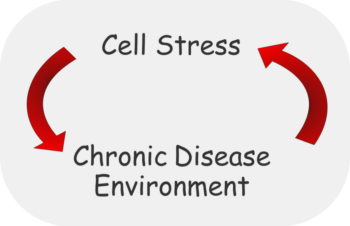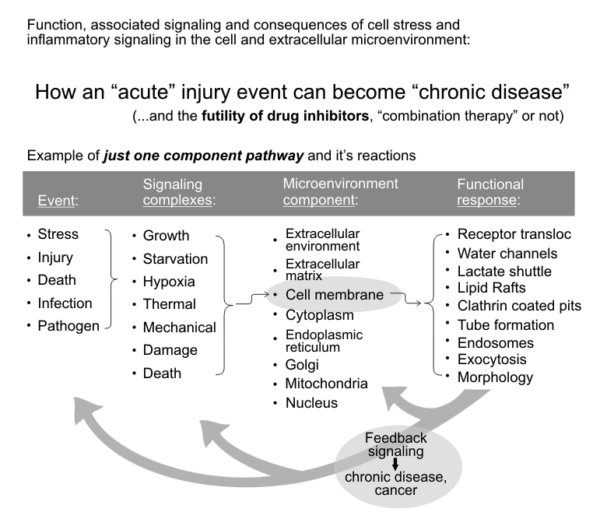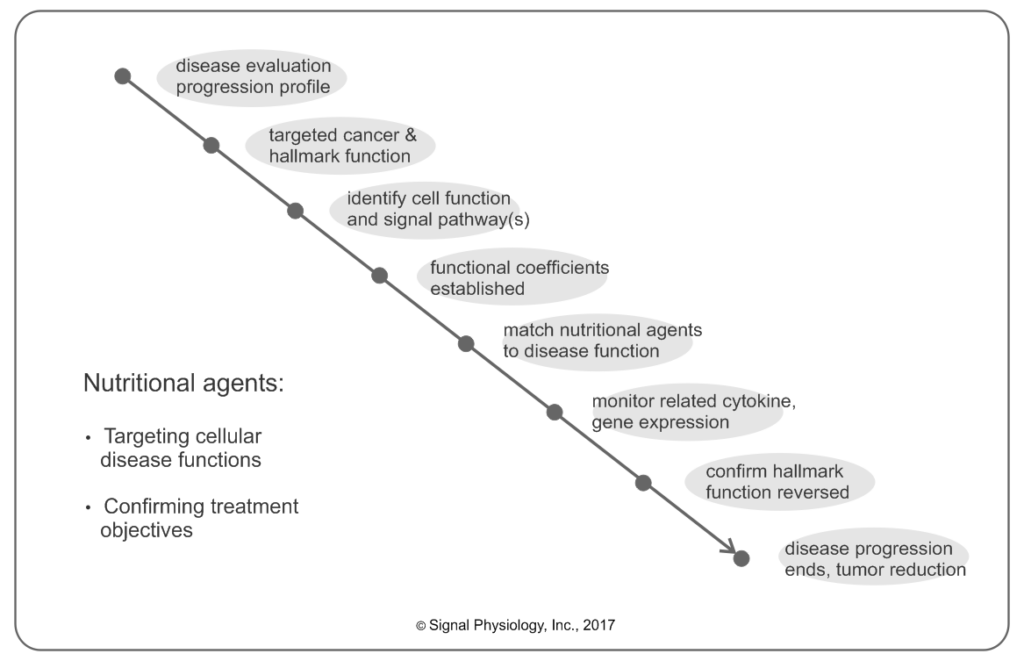
Another Path

Chronic inflammation and cancer
“The relationship between wound healing and cancer has long been recognized. The mechanisms that regulate wound healing have been shown to promote transformation and growth of malignant cells. In addition, chronic inflammation has been associated with malignant transformation in many tissues.”
“Wound Healing and Cancer Stem Cells: Inflammation as a Driver
of Treatment Resistance in Breast Cancer,” K Arnold, et al, 2015
Current treatment of metastatic cancer is comprised of sequential therapies of chemotherapeutic drugs. With each new drug, the patient experiences a period of remission followed by a resurgence of the disease, more aggressive disease kinetics.(see “Prostate Cancer“)
Signal Physiology’s mission is to take the other approach. We are not alone in this decision. In fact, there is a great revolution in medical research frantically pursuing methodologies and agents to bring to the clinic. These new methodologies and agents will radically change how we diagnose, treat disease, and more importantly, dramatically change the outcomes for patients for the better.
Two huge advances in medicine have occurred: cell-signaling genetics and nanoparticle technology. These advances have introduced (1) a new understanding of disease behavior within the cell microenvironment, much earlier and more relevant to the disease, and (2) a new way to delivery treatment that, as it turns out, is infinitely more relevant than prior medical approaches to chronic diseases including cancers.
The cell signaling pathways of cancer are the sentinels of specific cellular and systemic functions in the disease microenvironment. By targeting the specific cell functions resulting from the earliest events in cell stress with nutritional agents, disease is halted and eliminated naturally without inflammatory response, without resistance, without creating a more aggressive phenotype.

Specific cell-signaling proteins targeted by most chemotherapy drugs are actually consequences of specific cellular physiological processes. Targeted signaling pathways are actually in the process of interacting with a multitude of other signaling agents that impact the cell and disease environment (see “Cell Signaling“). The multitude of cell signaling events happening prior (upstream), during (parallel) and following (reactive) will inevitably overcome any attempts to suppress the particular disease process that is targeted (proliferation, stem cell recruitment or conversion, invasion, etc.).
“We show that curcumin modulates growth of tumor cells through regulation of multiple cell signaling pathways including cell proliferation pathway, cell survival pathway, caspase activation pathway, tumor suppressor pathway, death receptor pathway, mitochondrial pathways, and protein kinase pathway.”
Curcumin and Cancer Cells: How Many Ways Can Curry Kill Tumor Cells Selectively? J Ravindran, et al, 2009
Not only should we focus upon upstream signaling, i.e. the origins of disease signaling processes, we should also monitor, understand and assess the various cellular disease systems (cell physiology) occurring during the progression of disease. Order from chaos.

For a more detailed version of this protocol click here.
Disease metabolism and the re-definition of the cancer phenotype. No longer do we consider cancer to be an “invader,” an aberrant cell type proliferating uncontrollably overtaking the body physically and functionally. Uncontrolled proliferation is a true characteristic or “hallmark” of cancers. It’s what people fear most about the disease. But is cancer truly and “invader,” an apparently (genetically) foreign entity that the body is unable to kill? What if the body actually sees cancer as a “wound?” What if the body, actually the surrounding tissue, recognizes cancer and other chronic diseases, simply as injured tissue? The manifestations of chronic disease processes are create an amplified, continuing injury instead of the original intent, to heal the wound. Cancer is a perpetuating and expanding injury, not an “invader.”
